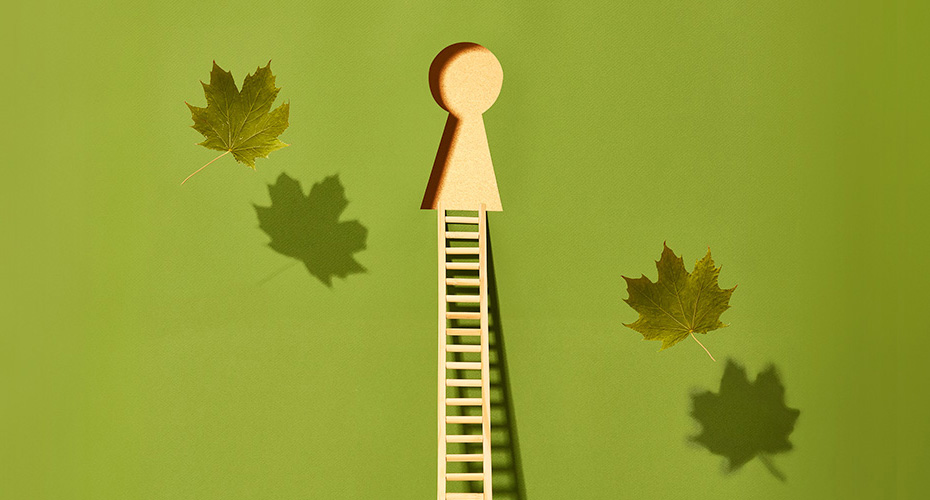TLDR
-
Your credit score in Canada reflects how responsibly you have managed credit.
-
Credit score typically ranges from 300 to 900. A good credit score that falls between 670 to 739, generally qualifies you for loans and credit cards with lower interest rates. A good credit score makes it easier to rent an apartment, get loans, and access lower interest rates.
-
You can start building your credit history by using a credit card, making on-time payments, and keeping your credit use low.
-
Set up automatic payments and track your spending to maintain a good credit score.
-
Checking your credit score helps monitor your financial progress and catch issues early. It does not affect your score.
Starting your life in Canada comes with many firsts, whether it is your first home, your first job, or even your first experience with credit in a new financial system.
When you move to Canada, your credit history from your home country will not be transferred, so you need to build it from scratch. This can seem overwhelming, especially since basic requirements, like renting an apartment, may depend on your credit score. With the right tools and guidance, you can take simple steps to build your credit history, even if you are doing so for the first time. Here is a simple guide to help you understand what a credit score is, why it matters, and how to build your credit score fast and responsibly.
What is a credit score?
In Canada, your credit history is a record of how you’ve managed credit over time, such as by paying off loans, credit cards, or other bills on time. This history is captured in your credit report. Your credit score is a number based on that report, typically ranging from 300 to 900. A higher credit score signifies a better credit history and shows lenders you’re reliable when borrowing money.
Why credit history matters in Canada
Lenders, landlords, phone providers, and even some employers use your credit score to assess your financial reliability. A higher score can make it easier for you to:
-
Get approved for a credit card or line of credit
-
Access lower interest rates
-
Clear employment checks
-
Sign up for utilities and mobile services
Good credit history indicates lower risk to loan you money and get approved for credit cards and mortgages. That’s why it is essential to start building your credit history in Canada early. It reflects your financial responsibility and lower interest rates for loans, mortgages and credit cards, helping you settle down faster in Canada.

How to maintain good credit
Building a credit history in Canada is an ongoing process. Maintaining a good credit score requires consistently good financial habits and awareness of what can impact your credit. Here are practical, easy-to-follow tips to help you build and maintain your credit score as a newcomer:
1. Apply for a credit card as soon as you can
Getting a credit card with no credit history is possible, and it is often the best way to establish your credit history in Canada. Some credit cards, such as RBC Avion cards, are designed to support newcomers and do not require a Canadian credit history to apply.
The sooner you start using a credit card, the sooner you can start building your credit history in Canada.
2. Use only a small portion of your credit limit
Your credit utilization ratio is the amount of credit you use compared to your total limit. Try to stay well below your limit (remember the 35 per cent credit utilization thumb rule) and pay off your balance in full each month. This will protect your growing credit history in Canada and show lenders that you’re financially responsible.
For example, if your credit limit is $1,000, try not to carry an outstanding balance of more than $330 in each cycle.
It is important to use your first credit card responsibly. You may be tempted to buy on impulse when you know you don’t have to pay immediately. Keep a close eye on your monthly budget and avoid making purchases you can’t afford to pay off.
3. Make payments on-time
Between searching for employment, finding a suitable place to live, and settling in Canada, we know life can get hectic for you. Unfortunately, this may increase the risk of forgetting things, like the payment due date of your credit card.
Missing a payment, even by accident, can lower your credit score. To avoid this, set up automatic payments through your bank account. You can choose to pay the full balance (ideal) or the minimum amount due each month.
This shows lenders that you’re dependable and responsible with credit.
Did You Know? Payment record, including late or missed payments, stays on your credit report for up to six years. So timely payments are crucial for good credit score.
4. Keep credit applications to a minimum
Every time you apply for a new credit product, the financial institution will run a credit check. Too many checks in a short time can signal to lenders that you’re desperate for credit and can lower your credit score. Apply only for the credit you need, especially when you’re laying your financial foundation in Canada.
5. Hold on to older credit accounts
The length of your credit history matters. The longer you have an account open and in good standing, the better it reflects on your score. If possible, keep your first credit card open even if you explore other options in the future.
Note: Your credit history is affected by credit accounts, such as a credit card, loan, mortgage, or line of credit. Your chequing or savings account balances, or your income, have no impact on your credit score.
6. Boost credit with a healthy mix of credit products
Another way to build your credit is by owning a healthy mix of credit products. This means using different types of credit such as credit cards, a personal loan, line of credit or a car loan. Lenders like to ensure that you borrow within your means and make payments on time. This can improve your credit score in the long run.
Take a minute to check your credit score at no cost for RBC clients
Checking your credit score gives you the insight you need to make informed financial choices. You can get a quick estimate to help you keep track of your finances such as:
-
See where your score currently stands (and how it has changed over the previous month)
-
Understand what factors influence your score
-
Learn how changes in payment habits (like using more of your credit limit or adding another credit product) could affect your score over time.
-
Find out which lenders made inquiries on your credit profile
How to Start Building Your Canadian Credit Score
RBC is here to help make your journey simpler and more secure. It is easy to apply for your first credit card online through the RBC mobile app or online banking website. No credit history required for RBC personal banking clients.
Need help? Talk to a newcomer advisor who speaks your language.
This article is intended as general information only and is not to be relied upon as constituting legal, financial or other professional advice. A professional advisor should be consulted regarding your specific situation. Information presented is believed to be factual and up-to-date but we do not guarantee its accuracy and it should not be regarded as a complete analysis of the subjects discussed. All expressions of opinion reflect the judgment of the authors as of the date of publication and are subject to change. No endorsement of any third parties or their advice, opinions, information, products or services is expressly given or implied by Royal Bank of Canada or any of its affiliates.






